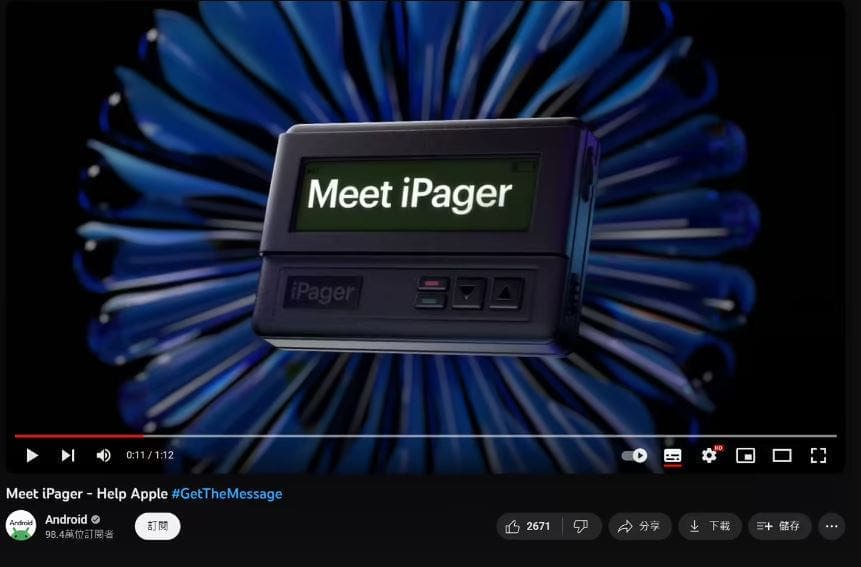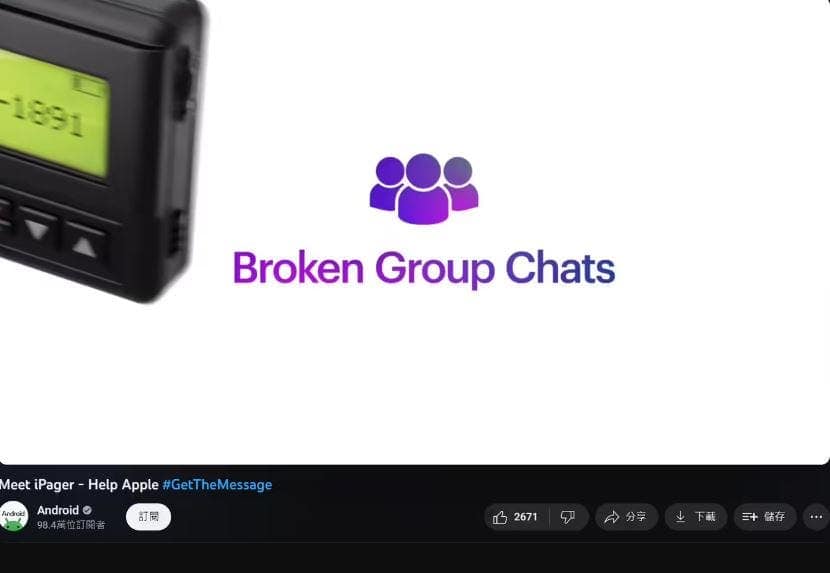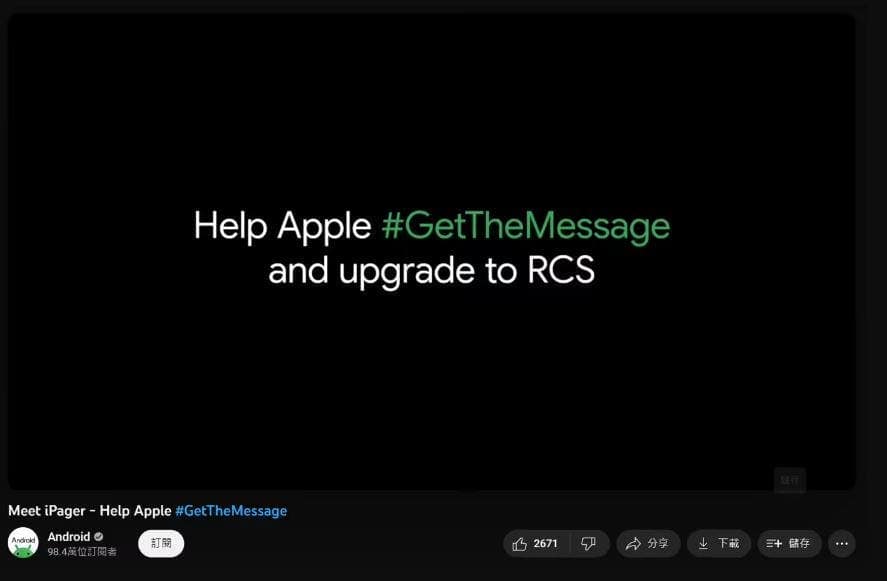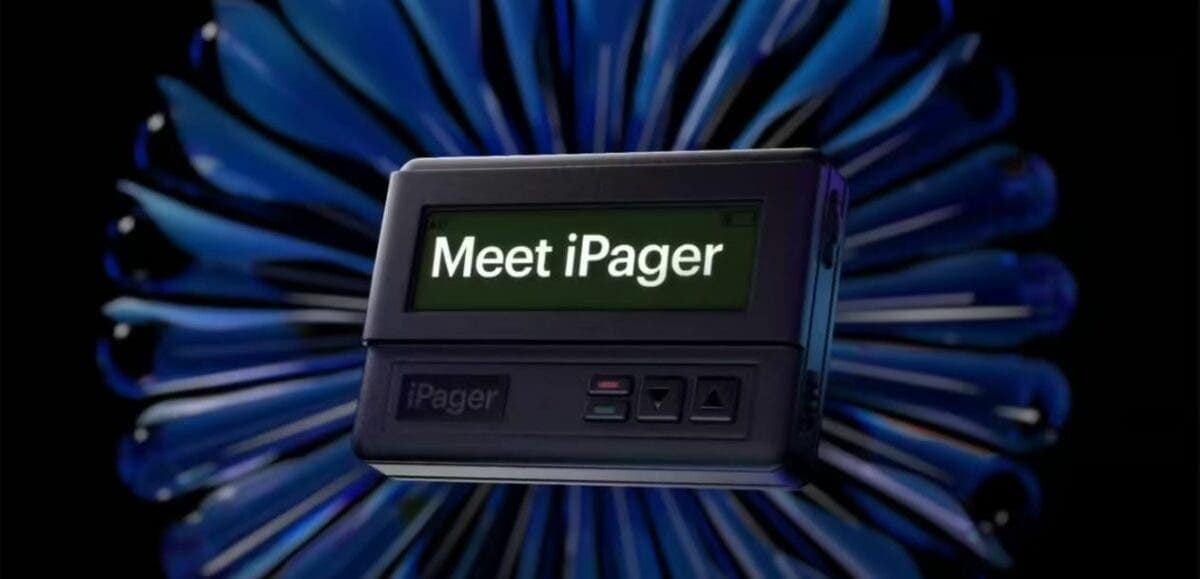Google has repeatedly campaigned for its RCS messaging service. In June 2022, Google released a teaser mocking other brands for not supporting RCS. This year, it has already released two videos doing the same thing. At the 2023 I/O Developers Conference, Google said that over 800 million people worldwide use RCS SMS.
Just a few months after Google released its last teaser, the company has released another. Google released a new ad for a fake gadget called “iPager” that tries to convince other brands to support the RCS messaging service. The ad shows a BP machine called an “iPager”, a reference to Apple’s conversion of iMessage messages sent to Android.
In the video description on YouTube, Google said
“iPager isn’t real, but the problems Apple is causing with SMS are real,” … “Let’s make SMS better for everyone and help Apple #GetTheMessage upgrade to RCS.”
RCS, or Rich Communication Services, is an update to the SMS standard that brings features like typing indicators, read receipts, and high-resolution image support to regular texting. RCS is a messaging protocol created by Google to replace SMS, which is old, limited, and not secure. It is an open standard that brings more features to regular texting, such as group chats, read receipts, and high-resolution images and videos. RCS is essentially the next generation of texting for Android, replacing SMS or MMS with a more features.
Google has been promoting RCS for all Android users. The company is also trying to convince other non-Android brands to use RCS. Other operating systems like HarmonyOS and iOS already have their alternatives to SMS. Huawei which owns HarmonyOS has Huawei Messages while Apple which owns iOS has iMessages.
Here are three valid reasons why other brands may not support RCS
1. CNET stated that not all carriers and devices support RCS yet. Verizon won’t support it until 2022, while T-Mobile won’t support it until 2020. This lack of support has made it difficult for RCS to gain traction among Android users. CNET claims that this is why it is not attractive to other operating systems.
2. Another reason why other brands don’t support RCS is that they have their own messaging service. At the moment, other mobile operating systems have shown no interest in adopting RCS. It is unclear whether it will do so in the future.
RCS chats offer several features, including showing when someone is typing, read receipts, sending messages over mobile data and Wi-Fi, and letting you share files and high-resolution photos[4]. When you use RCS chats, your messages are sent with the Rich Communication Services (RCS) protocol over Wi-Fi and mobile data.
Google has been pushing RCS through its Messages app, which has already begun transforming various aspects of its services. During Google I/O 2023, Google announced that it would be injecting AI into its Messages app by way of a feature called “Magic Compose”. This feature is part of the company’s larger AI integration initiative, which has already begun transforming various aspects of its services.
To turn on RCS chats in Messages, you need to ensure that your carrier and device are automatically set up for RCS chats. If they are not, you may be offered RCS chats and asked to provide your phone number. When you use RCS chats, your messages are sent over Wi-Fi and mobile data, and as long as you’re connected to a Wi-Fi network that you don’t have to pay to use, there should be no cost to send and receive messages.
There are several reasons why RCS may be needed. First, RCS provides a more dynamic and secure conversation with someone than SMS or MMS. Second, RCS offers several features that are not available with SMS or MMS, such as read receipts and the ability to share files and high-resolution photos. Finally, RCS is becoming more widely available, with most major carriers supporting it and Android users have been using it for several years.
Overall, RCS have its fair share of pros and cons. While RCS offers more features than SMS, its adoption has been slow, and it has vulnerabilities from a security perspective.
RCS is a messaging protocol created by Google to replace SMS, bringing modern features to regular text messaging. While RCS has its advantages, not all mobile phones in the market support it at the moment.
Phone brands such as Samsung have adopted RCS technology, but there are some brands that do not support it at the moment. Google is doing all it can to ensure that it attracts as many brands as possible to its messaging system. Google wants other brands to use RCS for obvious reasons, it will have more users. But for brands that already have a service that offers the same services as RCS, it may be hard for this to happen.
Efe Udin, a government tech policy expert is a seasoned tech writer with over seven years of tech writing experience. Efe’s true passion lies in exploring the intersection of technology, politics, and brand feuds.
With an astute understanding of the power dynamics and competitive landscape within the tech world, Efe delves into the intricacies of how technology influences political discourse and how brand rivalries shape the industry.
GizChina
Follow @gizchina

Accredited technology blog dedicated to providing breaking news, expert reviews and original content related to mobile tech and EV industry, smartphones, gadgets and IoT.
Keep up to date with the latest Android phone news and reviews on our social media channels:

